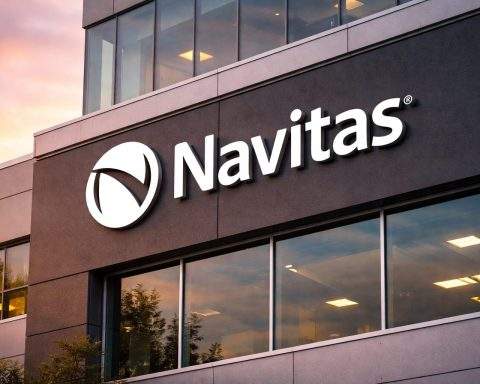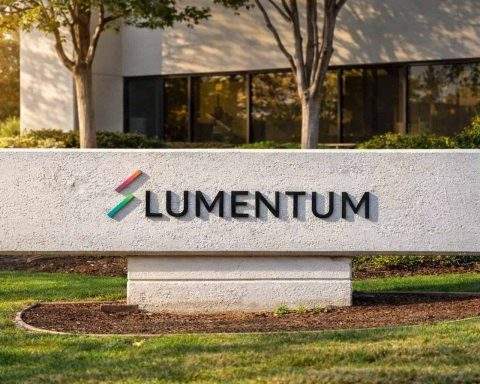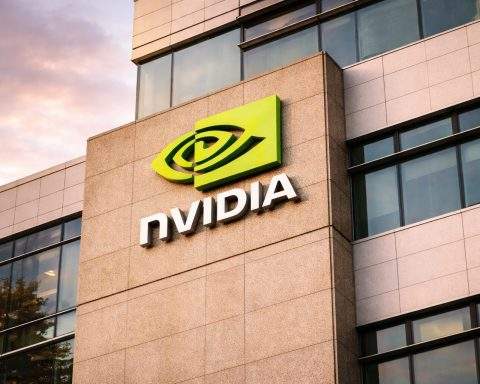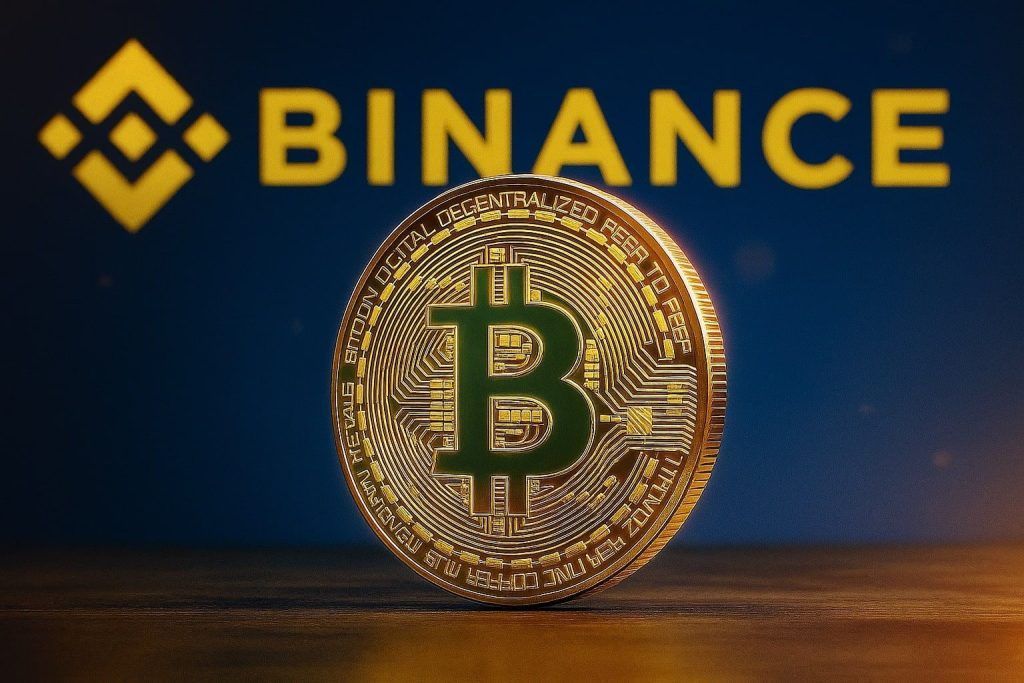Key facts (updated Nov 5, 2025)
- QQQ price now: $619.25, down ~2% intraday (11:41 UTC).
- Today’s backdrop: U.S. futures and global equities slipped as investors rotated out of AI‑linked megacaps on valuation worries; Nasdaq futures −0.6% pre‑market. 1
- Global ripple: Big Tech weakness dragged markets from Tokyo to Seoul and Hong Kong; Asia tech/chip names sold off sharply overnight. 2
- Latest milestone (last week): Nvidia briefly topped $5 trillion in market value—underscoring AI’s outsized role in QQQ. 3
- Concentration watch: IT = 54.5% of QQQ; top 10 positions ≈ 53% of the fund (NVDA ~10.3%, AAPL ~8.4%, MSFT ~8.1%). AUM ≈ $386B; fee 0.20%. 4
- Structure change on the table: Invesco has floated modernizing QQQ’s legacy UIT structure and trimming fees, a move closely watched across ETF land. 5
- Bull vs. caution (this week’s analysis):
The in‑depth report
What QQQ actually holds—and why that matters right now
Invesco QQQ tracks the Nasdaq‑100, a market‑cap‑weighted index of the largest non‑financial companies listed on Nasdaq—meaning the fund is inherently tilted toward megacap tech and communication‑services platforms. That tilt has been a tailwind during AI‑led surges, but it also concentrates risk when investors question valuations. 8
Fresh holdings data show just how top‑heavy QQQ is today: Information Technology (54.5%) dominates sector exposure, followed by Communication Services (15.3%) and Consumer Discretionary (11.6%). The top 10 positions—led by Nvidia (~10.3%), Apple (~8.4%), and Microsoft (~8.1%)—collectively account for ~53% of assets. That’s fantastic when those names run, but it amplifies drawdowns when leadership stumbles. 4
What just happened on Nov 5, 2025
After setting a string of highs in late October, the market tone has turned cautious. Nasdaq futures eased again this morning as investors stepped back from AI beneficiaries; a day earlier the Nasdaq logged its biggest one‑day drop in nearly a month. As HSBC’s Herald Van der Linde put it, “With very high valuations, small news can cause markets to come down a lot.” 1
The selling wasn’t confined to the U.S.: Asian tech and chip names sank overnight, echoing Wall Street’s reversal. Global wires pinned the slump on valuation anxiety and profit‑taking in AI winners. 9
The bull case: momentum, AI capex, and technicals
- Momentum + AI capex: Last week Nvidia became the first company to clear $5T in market value, an emblem of AI’s structural spending cycle (data centers, cloud, networking). Several strategists argue that if capex from megacaps keeps accelerating, AI leaders could continue to underpin QQQ. 3
- Technicals: A widely read technician this week mapped QQQ scenarios with a 680 base case in ~six months, 705 in an “extremely bullish” path, and a 580 retest as the bearish bound. From today’s ~$619, that pencils out to roughly +10% (base), +14% (bull), or −6% (bear). 7
- “Not as overbought as it looks?” DataTrek noted earlier this year that while the 50‑day surge was almost “three standard deviations above the mean,” the 100‑day picture looked more benign—reminding investors that short‑term heat doesn’t always equal long‑term excess. 10
The bear case: dot‑com echoes, narrow breadth, and expensive multiples
Barchart’s Rob Isbitts warns that today’s market “is like an athlete playing on one good leg”—capable of dazzling runs, but vulnerable if leadership falters. He also sees a plausible +30% final melt‑up before a rollover—eerily reminiscent of the year‑2000 pattern in QQQ. 6
Macro‑wise, valuation is the sticking point. Reuters notes the S&P 500 recently traded around 23.3× forward earnings—its richest since the early 2000s—fueling fears that any policy or earnings wobble could snowball. While that’s the S&P, QQQ’s largest holdings often command even steeper multiples. 1
Why QQQ’s structure and siblings matter (related subjects)
- UIT → modern ETF? The Financial Times recently reported that Invesco is pursuing a shareholder vote to migrate QQQ’s legacy unit investment trust structure to a modern open‑ended ETF and shave fees. If completed, that could improve dividend handling and securities lending economics without changing the index. Watch this—it’s not just admin; it affects costs and tracking. 5
- QQQM (same index, cheaper): For long‑term buy‑and‑hold investors, Invesco’s QQQM tracks the same index at a slightly lower expense ratio, trading with less liquidity than QQQ (which traders prefer). (Background via Investopedia.) 11
- QQQE (equal‑weight): Direxion’s QQQE redistributes weight away from megacaps. It typically lags in powerful cap‑weighted rallies, but it can diversify single‑name risk. 12
- Leveraged/short exposures: Products like TQQQ/SQQQ can magnify moves—and risks. Research this year shows leveraged ETF outcomes hinge on trend persistence and volatility, not just “volatility drag.” Translation: in strong trends they can outperform their multiple; in choppy, mean‑reverting markets they can badly lag. Not buy‑and‑forget tools. 13
Price & performance snapshot
- Spot price:$619.25 (11:41 UTC).
- Past year: QQQ has gained ~30% over 12 months, largely on AI leaders. 6
- Q3 recap (NAV): +8.94% (6/30–9/30), beating the S&P 500 over that span; YTD through 9/30: +17.9%. (Point‑in‑time figures; subsequent market moves may differ.) 14
Six–twelve‑month outlook: a scenarios map
Below is a neutral framework you can pressure‑test against your own macro view. It blends this week’s published technical targets with fundamental drivers (AI capex, rates, regulation, global demand):
| Scenario | Drivers we’d need to see | Illustrative QQQ level | Implied move vs. $619 |
|---|---|---|---|
| Bull | AI capex re‑accelerates; earnings revisions trend up; rate markets calm; regulatory overhangs fade | ~705 (technician’s bull) | ≈ +14% Seeking Alpha |
| Base | Earnings broadly meet; AI leaders hold/gain share; rates drift | ~680 (technician’s base) | ≈ +10% Seeking Alpha |
| Bear | Earnings wobble; AI ROI questioned; policy shocks/tariffs bite; breadth weakens | ~580 (technician’s bear) | ≈ −6% Seeking Alpha |
| Late‑cycle blow‑off | Sentiment chase into megacaps before reversal | ~805 (≈ +30%) | ≈ +30% (Barchart “last leg up” risk) Barchart.com |
Expert voices:
• “There’s a path for QQQ to rise another 30%.” — Rob Isbitts, Barchart. Barchart.com
• “With very high valuations, small news can cause markets to come down a lot.” — Herald Van der Linde, HSBC. Reuters
• The prior 50‑day surge was almost “three standard deviations above the mean,” DataTrek noted—short‑term hot, longer‑term mixed. 10
Risks to monitor
- Breadth & concentration: If leadership narrows further (top five already ~38% of QQQ), corrections can be abrupt. 4
- Policy & legal overhangs: Tariff litigation and macro data gaps tied to the government shutdown have injected unusual uncertainty into policy‑sensitive names. 1
- Earnings cadence: Server, semis, and cloud capex commentary (especially from the biggest weights) remain the near‑term catalysts for QQQ’s direction. 3
Bottom line
QQQ remains a high‑octane bet on U.S. megacap tech and the AI build‑out. That’s why it has led during upswings—and why it stumbles when investors question lofty multiples. If you believe AI capex is still early and earnings power will catch elevated valuations, the base‑to‑bull pathway above is plausible. If you worry that breadth is thinning and policy or profit hiccups will sour sentiment, tilt toward the bear lane (or consider diversified or equal‑weight alternatives).
Either way, today’s pullback is a reminder that concentration cuts both ways. As Isbitts warns, the market can sprint “on one good leg” until it doesn’t. Position sizing, time horizon, and risk controls matter as much as the ticker. 6
Sources & further reading (latest first)
- Reuters: “S&P 500, Nasdaq futures slip as valuation concerns linger” (Nov 5, 2025). 1
- Associated Press: “World shares retreat after losses for Big Tech pull US stocks lower” (Nov 5, 2025). 9
- Business Insider: “Tech and chip stocks tumble across Asia…” (Nov 5, 2025). 2
- Wall Street Journal: “S&P, Nasdaq Rise to Kick Off November” (Nov 4, 2025). 15
- Reuters: “VIEW Nvidia breaches $5 trillion in market cap” (Oct 29, 2025). 3
- Barchart (Rob Isbitts): “The QQQ ETF Could Gain 30% From Here, But It’s Also Waving a Giant, Dot‑Com Era Red Flag” (Nov 3, 2025). 6
- Seeking Alpha (technical analysis): “Nasdaq 100: Still Bullish, New Price Targets (Technical Analysis)” (Nov 4, 2025). 7
- Schwab (live holdings/sector weights; AUM/fee): Invesco QQQ Trust—All Holdings (updated Nov 4–5, 2025). 4
- Invesco (what QQQ tracks): About QQQ / Nasdaq‑100 overview. 8
- Financial Times: “Inside the knotty economics of the world’s most profitable ETF” (Oct 2025; UIT modernization & fee context). 5
- Invesco: Quarterly outlook (Q3’25 NAV/YTD). 14
- Direxion: QQQE (equal‑weight Nasdaq‑100). 12
- arXiv: Leveraged ETF compounding effects (context for TQQQ/SQQQ). 13






